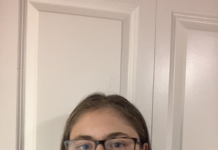Hello, FIRST community! While there may be a variety of ages reading this issue, this article is aimed at those who will be graduating high school in the upcoming years! One major question you may have about the post-secondary application process likely involves scholarships. Multiple FIRST Canada youth council members have won major scholarships to help finance their education. Below is the advice of Tyler S., a youth council alumni, who won the McMaster Schulich Leader Scholarship, and the McMaster FIRST Scholarship.
How did you tackle writing scholarship applications? Did you have a certain process for essays, short answer questions, etc?
For essays, I think that it is vital that each paragraph is planned out so that you can communicate each of the points you want to highlight without repeating yourself (and using up a valuable word count). Short answer questions are equally important to plan. I would always write what I wanted to say in full, then cut down and condense my point as necessary to meet max word counts.
If there were interviews involved in your application process, how did you prepare for them?
For McMaster interviews and other university supplementary applications, they were kind enough to allow for trial runs as the interviews weren’t live. However, for live interviews (such as Dean’s List and job interviews), I always write down the points I want to highlight, along with a couple of examples I can use to back up those points. Having those examples fresh in my mind has helped me to cut out panic from interviews.
What was your best resource for finding out about different scholarships?
FIRST maintains a list of scholarships affiliated with them on their website, which can be a good place to look. My guidance counsellors also helped post scholarships for students to see. Platforms like Scholartree also have comprehensive lists of scholarships.
What did you focus on highlighting in your applications?
My focus was always on providing solid examples of my work and experience. Rather than discussing my skills and competencies, I would describe my contributions to different extracurriculars, allowing that work to justify various skills. I would still mention the key skills I learned from those experiences, as it is important to show critical thinking about your work but focus on what you can show through your experience.
Any last advice?
Have someone you trust read your work over! Having multiple perspectives can help you catch small mistakes.







